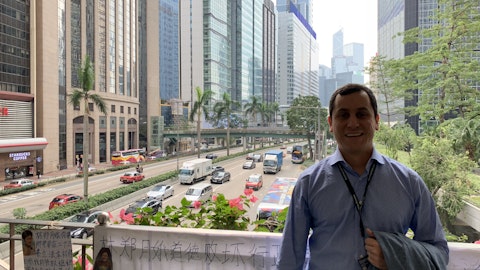The S&P 500 index has fallen tremendously; experts are of the view that the United States of America has never seen jarring volatility like the market volatility in the times of coronavirus outbreak. To understand the impact of COVID-19 on the global economy, we recently spoke with Adolfo Salume, founder of Prologence Group.
Adolfo started his career as an investment banker specializing in leveraged buyouts. He is the Chairman of the Board and CEO at Grupo Prologix. He owns about 50 different companies in 16 countries. Additionally, he is also the Founder and President of five charitable foundations dedicated to improving public education for the underprivileged, leadership, and value formation and institutional transparency in Central America.
A combination of people and profits make Adolfo a unique leader with multi-industry enterprises under one umbrella. With exposure in diverse sectors, Adolfo serves on the advisory board of several large corporations.

Adolfo Salume
He is an investor and owner of several businesses in diverse industries such as finance, logistics, distribution, manufacturing, port operations, and clean technology active primarily in the North and South American regions. With the onset of the coronavirus pandemic, Adolfo advises businesses to re-strategize ways to sustain and emerge stronger in the new normal world. Some of his key insights hinge on changes in consumer buying behavior, the need for adopting a more flexible working culture and purpose, and system driven leadership. Excerpts:
Q: Adolfo, how has COVID-19 impacted businesses globally?
A: Covid-19 is like one of those surprise competitive examinations that you were hardly prepared for. The only thing certain about this public health-scare is that no one has the choice to opt-out of it. Uncertainty looms large in the aftermath of the exam. No one knows for how much longer the pandemic will continue. People are unsure by when the job market will start full-fledged. No one can predict the economic crisis that is we are yet to behold.
Q: Do you think we’ve reached a stage where we can say we’ve flattened the curve?
A: We even don’t know if the virus is going to make a comeback even after the curve flattens in the first wave. The best and most thoughtful way to face this pandemic is to think of effective strategies to reinvent ourselves and our areas of work. Most organizations have embarked on a “no regret” path to address the downfall of the business. Companies must outmaneuver uncertainty by course-correcting, again and again, as circumstances change. This requires them to reassess assumptions, re-evaluate scenarios, and strengthen their ability to sense and respond.
Q: How has COVID-19 impacted consumer behavior?
A: The pandemic is bringing a major change in consumer buying behavior. Customers are taking a new approach to decide what and how they should make a purchase, causing major structural changes in the consumer goods industry. Retailers are pivoting to offer curb-side pick and contactless delivery services for consumers. Once the threat of the virus is over, consumers would have learned a great deal by then to live in uncertain times. This will prompt manufacturers and sellers of goods and services to reimagine their digital strategies to capture new marketplace opportunities and digital customer segments.
Q: How are you adapting to these testing times?
A: Our organization is working on ways to develop an agile workforce to mitigate the disruption of the current working culture. Such a situation has brought forth the need to accelerate the adoption of agile ways of working. Automating routine tasks with human and machine models, where everyone is a knowledge worker, can also help to serve businesses now and to position them for growth post-COVID-19.




